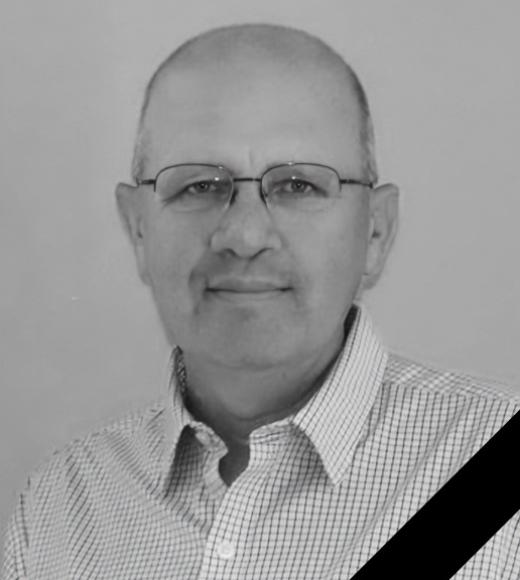
Position Title
In Memoriam
Professor of Cooperative Extension
1967-2025
KENNETH W. TATE
Birth: Newark, California
Death: June 5, 2025, Oregon
Education:
- A.S., Range Management, Northeastern Oklahoma A&M College, 1987
- B.S., Range Ecology and Management, Oklahoma State University, 1989
- M.S., Range Ecology and Management, Oklahoma State University, 1991
- Ph.D., Water Resources, Oklahoma State University, 1995
Employment
- USDA National Needs Fellow in Water Resources, Oklahoma State University, 1991-1994
- Assistant Rangeland Watershed Specialist in Cooperative Extension, UC Davis, 1995–2001
- Associate Rangeland Watershed Specialist in Cooperative Extension, UC Davis, 2001–2005
- Rangeland Watershed Specialist in Cooperative Extension, UC Davis, 2005–2012
- Professor and Rangeland Watershed Specialist in Cooperative Extension, UC Davis, 2012–2025
- Vice Chair for Outreach and Extension, Department of Plant Sciences, UC Davis, 2009–2014
- Interim Chair, Department of Plant Sciences, UC Davis, 2011–2012
- Russell L. Rustici Endowed Chair in Rangeland Watershed Science, UC Davis, 2009–2024
Honors, Awards, and Professional Societies
- W.R. Chapline Land Stewardship Award, Society for Range Management, 2022
- Conservation Impact Award, California Rangeland Trust, 2016
- James H. Meyer Distinguished Achievement Award, UC Davis, 2015
- UC Cooperative Extension Distinguished Service Award (Team), 2014
- Eric Bradford and Charlie Rominger Agricultural Sustainability Leadership Award, 2012
- Western Extension Directors’ Award of Excellence, 2012
- Outstanding Achievement Award for Research, Society for Range Management, 2011
- Outstanding Young Range Professional, Society for Range Management, 2000
- Certified Rangeland Professional, Society for Range Management, 1999+
- California Certified Rangeland Manager, CAL FIRE, 1999+
Research Contributions and Impact
Tate was a nationally and internationally recognized leader in rangeland watershed science, with particular expertise in water quality, livestock production, and ecosystem management. His research addressed microbial and chemical contaminants on rangelands, helping shape best practices in grazing management to protect water resources. He led collaborative investigations on the fate and transport of pathogens such as E. coli, Giardia, and Toxoplasma, as well as pharmaceuticals and hormones. His work informed science-based land management practices across California’s 30 million acres of rangelands and influenced state and federal policy on grazing and water quality.
Publications and Scholarly Leadership
Tate authored over 100 peer-reviewed publications and served as associate editor for California Agriculture and Rangeland Ecology and Management. His notable publications included work on nutrient retention in wetlands, global soil health under grazing, and buffer strip efficacy for pathogen filtration. He was instrumental in translating research into practice, contributing to UC Agricultural Experiment Station reports and multi-agency programs.
Teaching and Mentorship
Tate taught Rangeland Ecology and Management (PLS 130) and mentored more than 50 graduate students, postdoctoral researchers, and visiting scholars. He also supported undergraduate engagement through internships and field opportunities. Many of his former mentees have gone on to influential roles in conservation and Cooperative Extension.
Collaboration and Community
Tate exemplified the Cooperative Extension mission by working across disciplines and with diverse stakeholders, including ranchers, public agencies, and conservation groups. He co-founded the biennial UC Rustici Rangeland Science Symposium and led drought-response initiatives such as the 2014 “Ranching and California’s Drought” webcast. His research informed land management decisions from the Sierra Nevada to the Salinas Valley and supported sustainable practices through applied science.
Legacy
Kenneth W. Tate’s career advanced the science and practice of rangeland management through innovative research, integrated outreach, and inclusive leadership. His legacy includes an enduring framework for rangeland stewardship and a generation of scientists and professionals guided by his mentorship and example.
References
For additional tributes, interviews, and biographies, see the following resources:
